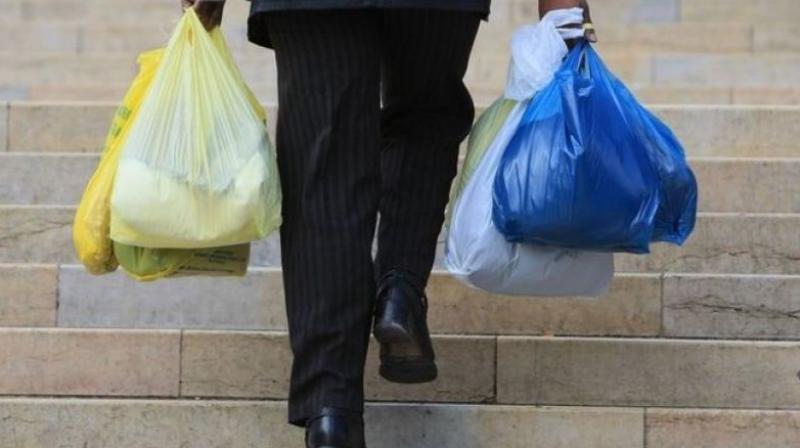GHMC comes up short in fight against plastic

Hyderabad: The city municipality may be conducting random checks to haul up retailers selling goods in thin polythene bags, but the issue won’t go away anytime soon as manufacturers of these bags continue to operate freely in the Katedan industrial area. Just last month, the west wing of GHMC collected Rs 40,000 in fines from commercial outlets for handing out polythene bags of 50 microns or thinner to consumers. These bags were banned in the city in June 2016 as they are non-biodegradeable and major contributors to plastic pollution.
The GHMC says the menace is unmanageable as many illegal units continue to supply these bags in the city. “Katedan and Nam-pally have many unauthorised plastic industries that make and supply these banned poly bags,” says Dr N. Ravi Kiran of the GHMC’s sanitation wing. The Katedan industrial area is a hub of plastic manufacturers and recyclers where the city’s plastic comes from and goes back for recycling. But a substantial number of these units are illegal.
But since a number of these recycling-cum-manufacturing units operate without valid permits, the government is struggling to regulate them. One such small-scale illegal recycler of poly bag material said he gets about 10 tonnes of plastic per month. He said that plastic covers of different quality are grinded together, made into pellets and sold to processors who make items like drums, brackets and more. The poly bags thus made are said to be dangerous, especially when they are used to carry food, because they have carcinogenic properties.
But experts say this is just a tip of the plastic iceberg as these plastics see at least informal recycling. “Many plastic bags are never recycled, especially the ones that have domestic waste mixed with them,” says Major Shiva Kiran, the founder of Sukuki Exnora, a solid waste management NGO. The PCB, however, dismisses this and thinks the problem lies elsewhere. “The banned plastics come from outside the city,” claims Mr Venkanna of PCB.

